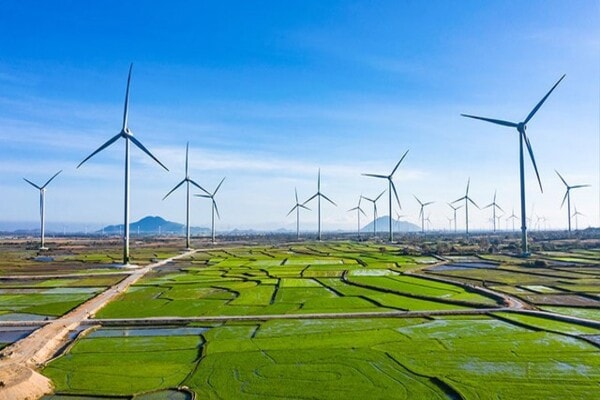
In the world today, governments have quickly stepped in to ensure substantial commitments to environmental friendliness for large enterprises and corporations. In particular, the experience of developed countries is to build a legal framework, require public disclosure of environmental indicators, and prevent fraud in information disclosure.
In 2023, the European Union passed a draft law banning greenwashing tactics, requiring companies to provide specific evidence if they want to label their products as “environmentally friendly”. In Germany, the Federal Court of Justice has ruled against “greenwashing” in advertising, requiring products marketed as “green” to provide clear and detailed explanations of their climate-related benefits.
In China, the Government has imposed strict requirements on the disclosure of financial statements by companies, requiring regular and highly transparent disclosure of environmental information.
In Vietnam, with a commitment to net zero emissions by 2050, the Government has issued the National Green Finance Strategy for the period 2021-2030, the National Action Plan on Green Finance for the period 2022-2025, Regulations on green bonds, and Support for the development of green investment funds. Vietnam has also committed to many common global goals such as reducing greenhouse gas emissions by 2030, ending deforestation by 2030, or becoming carbon neutral by 2050. According to PWC's 2022 Transparency Report on the status of Environmental, Social and Governance (ESG) reporting in Vietnam, 80% of interviewed businesses said they were aware of the new global trend and committed to implementing it in the near future. However, up to 82% of businesses responded that the main purpose of participating in ESG was to improve the image and reputation of the brand. Of which, 37% of businesses said the purpose of participating was pressure from state management agencies; 40% was pressure from investors and shareholders. If ESG participation is considered a formality to avoid public pressure or for commercial purposes, “greenwashing” behavior will continue.
Therefore, to minimize the risk of “greenwashing”, Vietnam needs to build a clear legal framework based on a combination of regional and international standards suitable for the domestic economic context. In particular, focusing on transparency and information disclosure for products. While Vietnam does not have a specific legal framework, businesses need to proactively build an international framework or standard to combat “greenwashing” behavior in governance.

Comment
Print